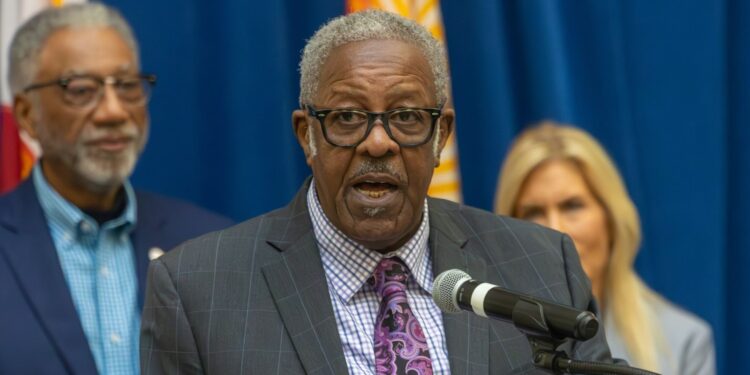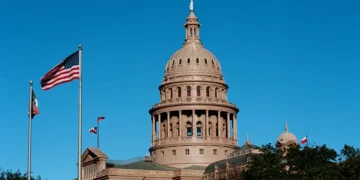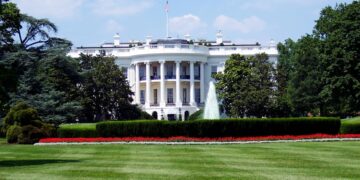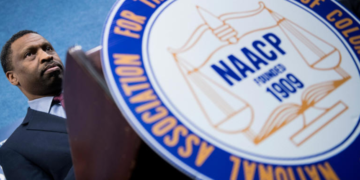Jacksonville NAACP President Isaiah Rumlin addresses the audience on December 11, 2023, regarding Jacksonville’s consolidated Martin Luther King Jr. breakfasts. | Photo by Will Brown, Jacksonville Today. Img source: jaxtoday.org
April 29, 2024 Story by: Editor
JACKSONVILLE, Fla. – The Jacksonville Chapter of the NAACP convened a town hall meeting on Tuesday night, inviting parents, educators, and students to discuss the Duval County Public Schools (DCPS) plan to close and consolidate numerous schools in the district.
The NAACP aimed to clarify the reasons behind the school closures following voter approval of a half-cent sales tax intended for school construction and maintenance.
Both the interim superintendent of Duval County Public Schools and the school board president attended the meeting at the Beaver Street Enterprise Center, located at 1225 West Beaver St.
The district has proposed closing nearly 30 schools to address a $1.4 billion budget shortfall.
Hank Rogers, Vice President of the Jacksonville NAACP chapter, emphasized the importance of dispelling misinformation within the community.
“Discussing the potential closure of 30 schools to address a $1.4 billion budget gap is crucial, as it impacts not only the Northside but the entire county,” Rogers said. “Bringing people together to obtain information and have their questions answered is vital.”
The proposed closures could include several magnet schools, potentially saving the district approximately $77 million. Source: News 4 JAX
The district attributes the consolidation plan mainly to declining enrollment, as more students transition to private and charter schools. Over the past decade, the district has lost 30,000 students.
In a statement, the Jacksonville NAACP Branch questioned the necessity of closures after voters approved a half-cent sales tax increase in 2020 and a millage rate increase in 2022.
Rogers expressed that they received a satisfactory explanation.
“We now understand the significant impact charter schools and vouchers have had on our school district,” Rogers said.
School Board Chair Darryl Willie acknowledged the changing educational landscape since 2019. He mentioned the establishment of oversight systems for the half-cent sales tax and the millage.
“We have set up an oversight committee for the half-penny sales tax and an audit advisory committee for the one mill to ensure we are doing right by the community,” Willie said. “Ultimately, we hope to involve community input, but we must make tough decisions in the best interest of our students.”
Willie highlighted the necessity of building new schools to remain competitive.
“We owe it to the community to build these schools because many of our schools are among the oldest in the state,” Willie said. “While nostalgia for old schools is understandable, our children need state-of-the-art, innovative schools with all necessary resources.”
The district also created a “Frequently Asked Questions” section on its website to outline the considerations and reasons behind the plan.
The district cited three primary reasons for the discussions:
1. Operational Revenue and Falling Enrollment: The district’s funding is tied to student enrollment numbers. The expansion of the state’s school choice voucher system and the increased interest in charter schools have led to decreased enrollment in Duval County public schools.
2. Inflation and New State Law: Inflation and a new state law requiring revenue sharing with charter schools have contributed to the $1.4 billion gap in the master facility plan funding, despite the half-cent sales tax approved by voters in 2020.
3. Boundary Zone Requirements: The district must zone all students to a neighborhood school despite school choice options. Boundary lines have evolved with neighborhood changes and new school openings.
The district has also informed employees that more than 700 positions might be cut due to declining enrollment and the expiration of COVID-19 relief funds.
Monique Tookes, a parent with four children in DCPS, noted that while her children’s current schools are unaffected by the consolidation, some schools they previously attended might be impacted.
“It’s not just about my children, but all children in the community. We need to fulfill the promises made to these communities regarding their schools,” Tookes said.

















